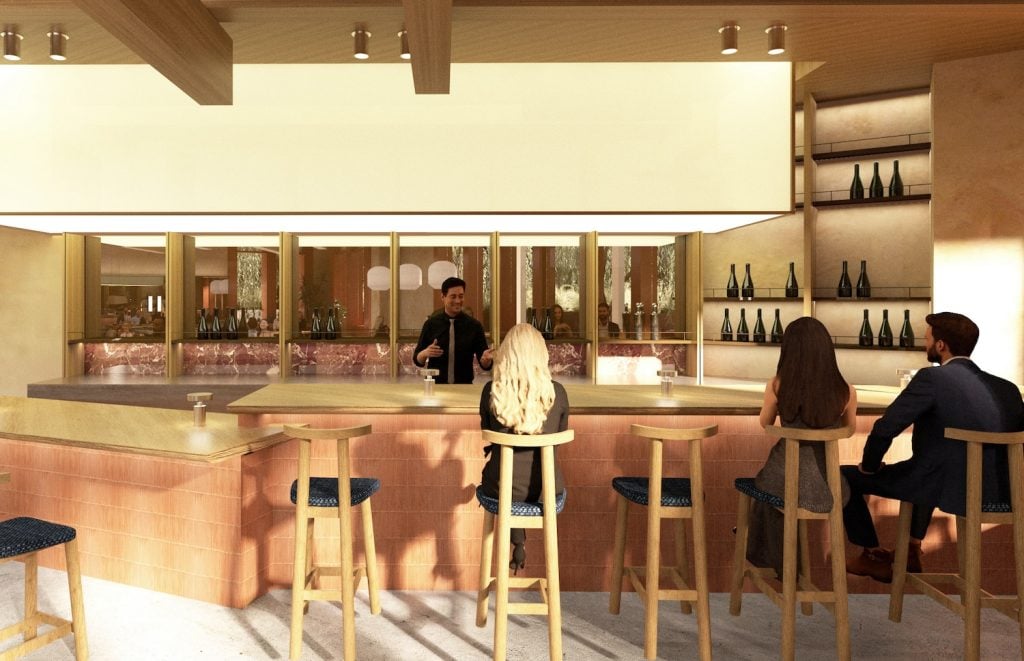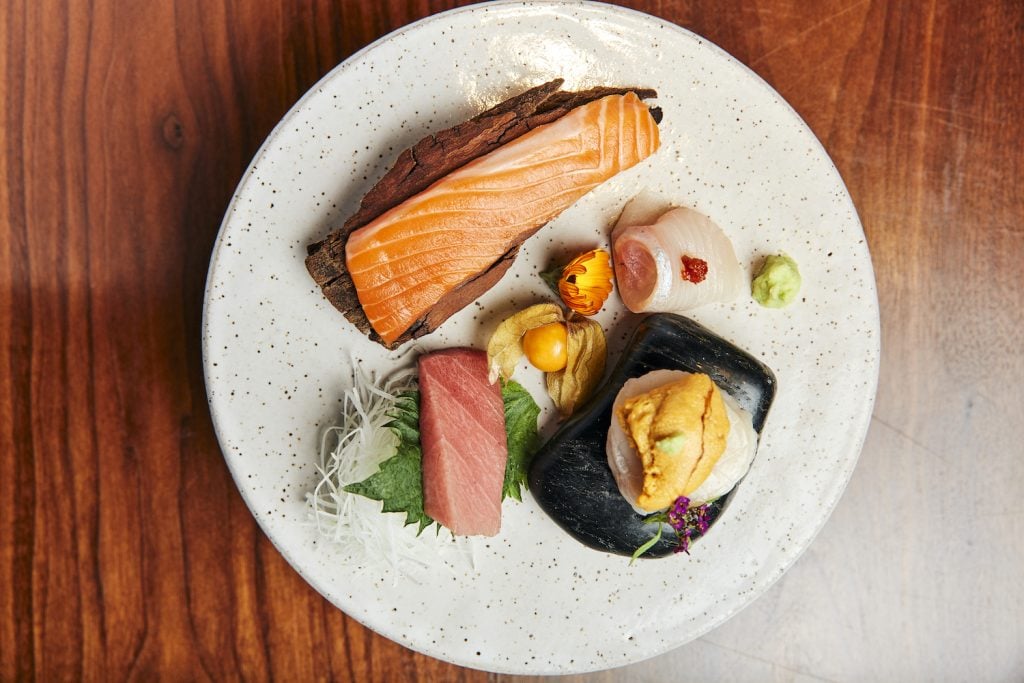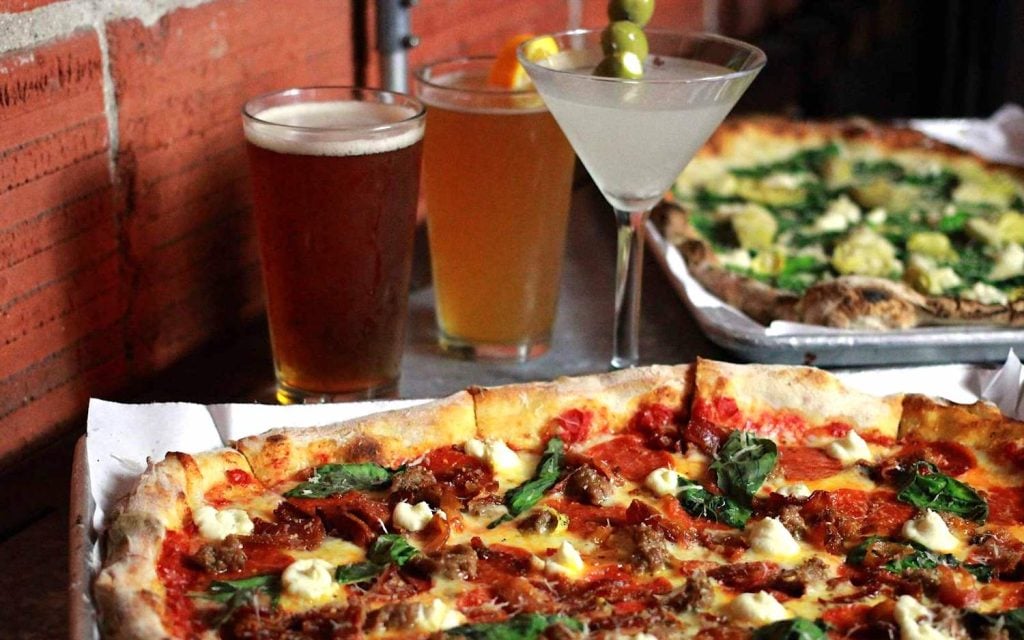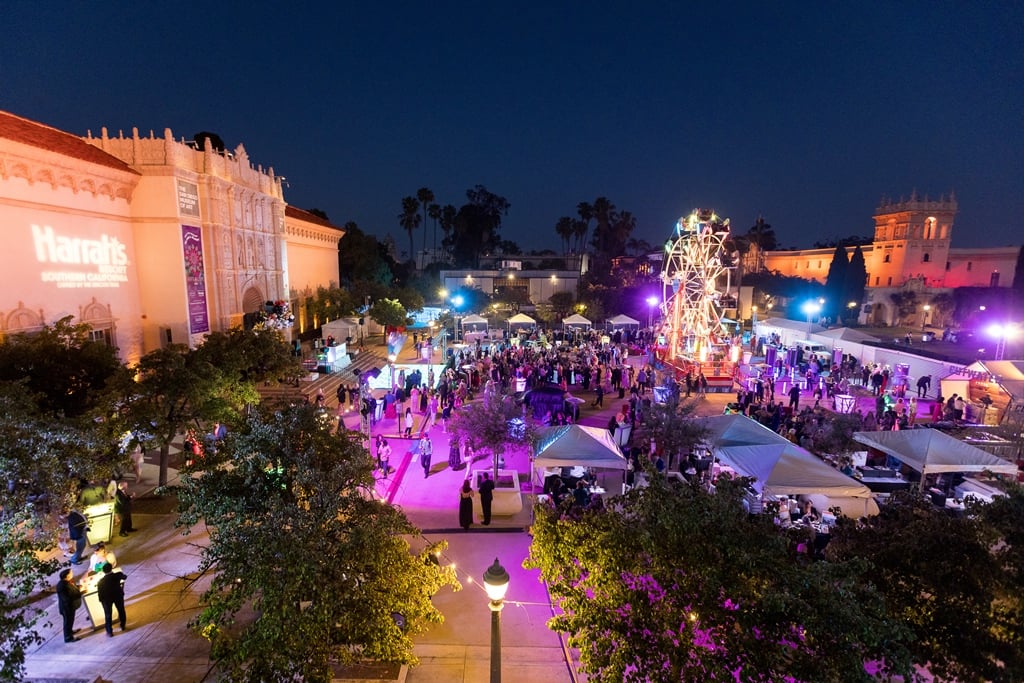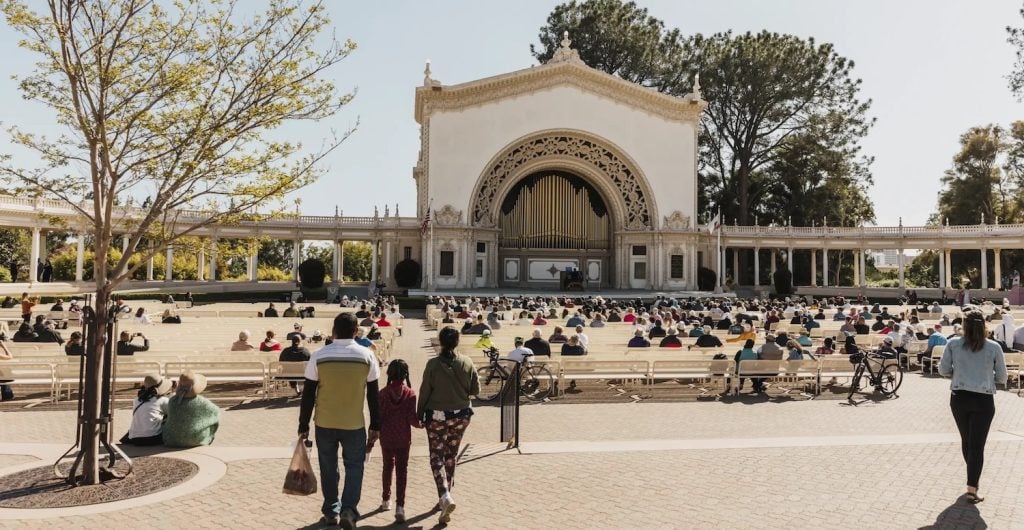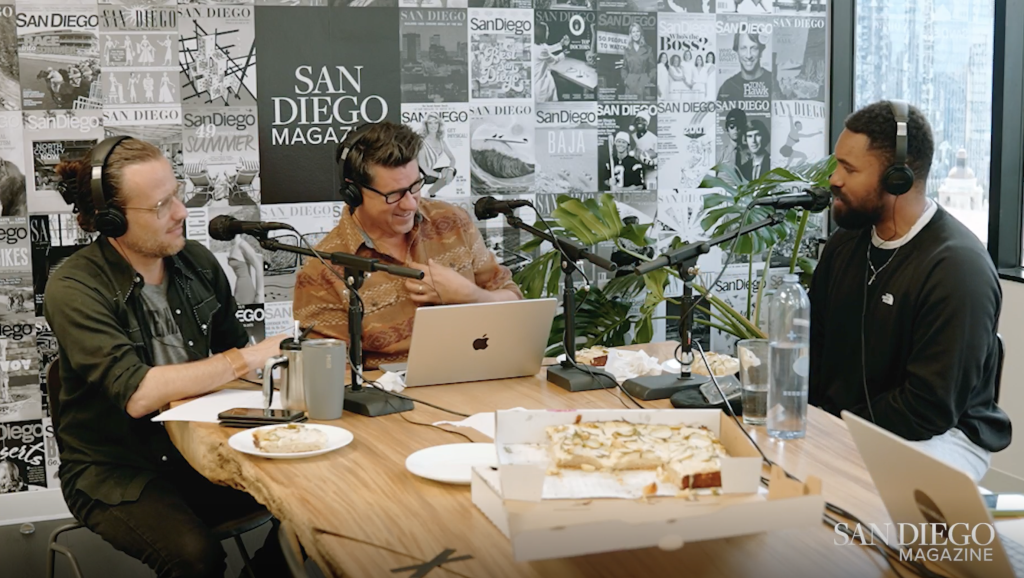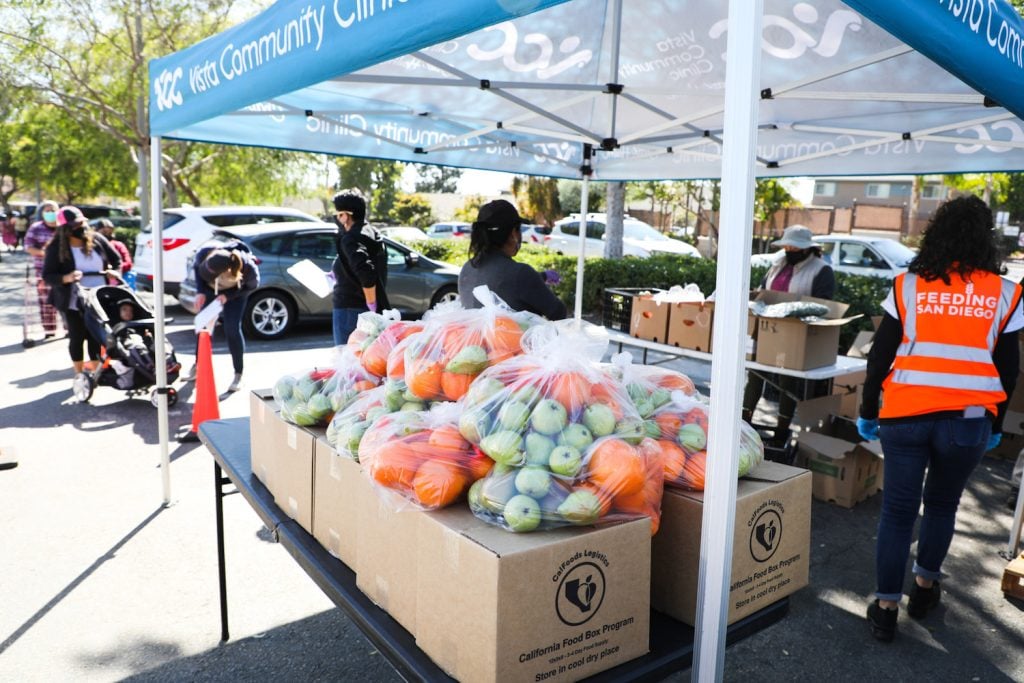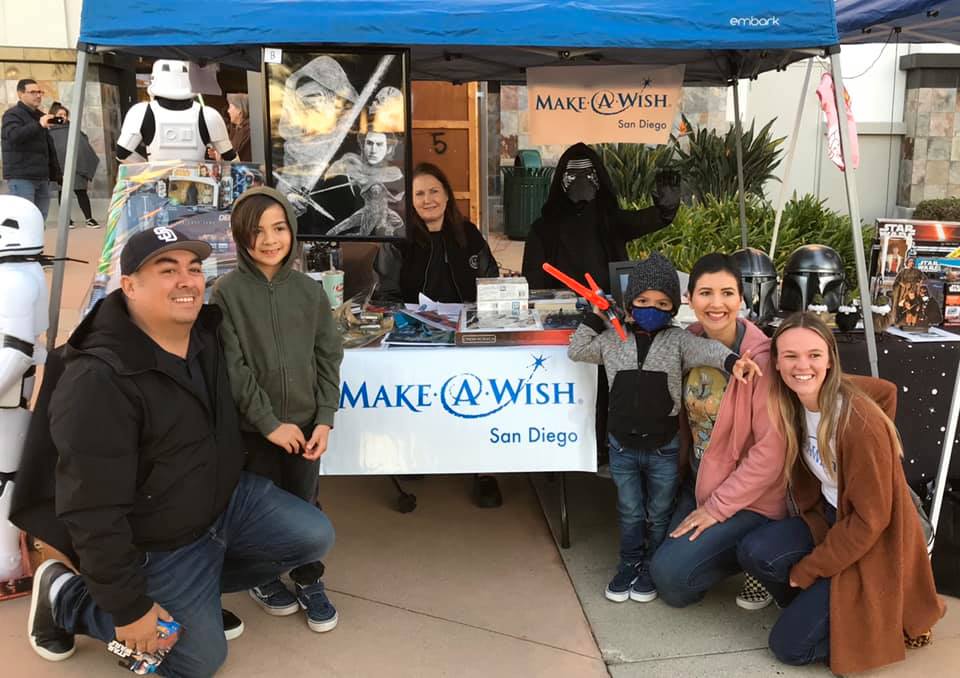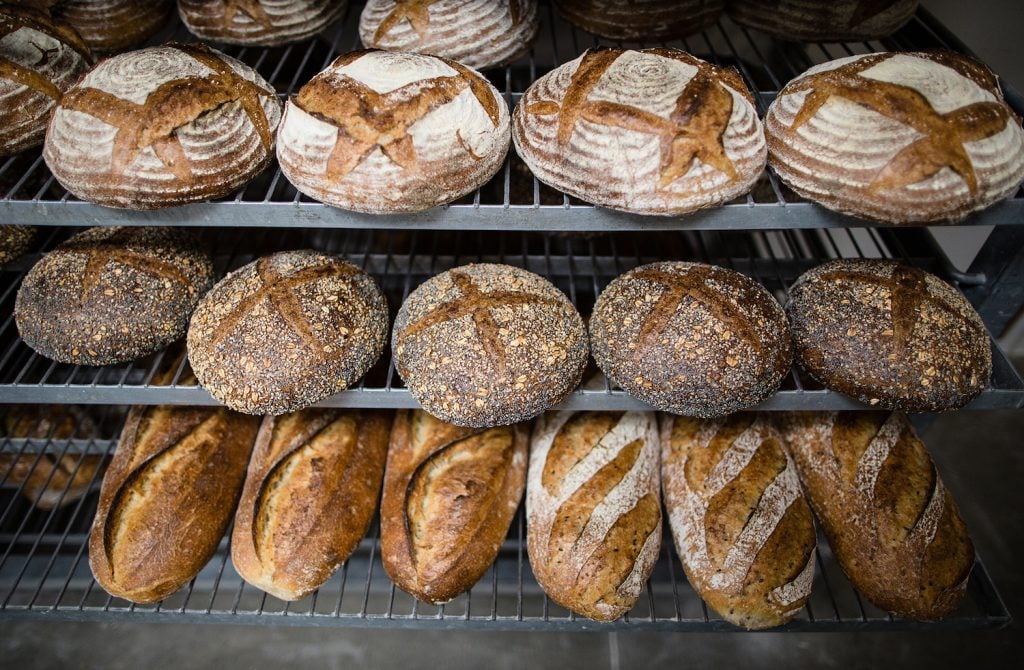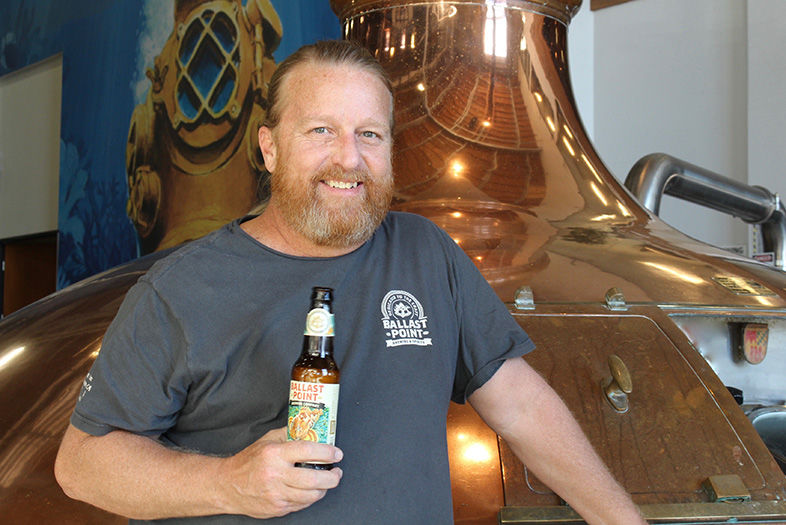When Ballast Point announced it was selling to Constellation Brands in 2015, the news rocked the entire San Diego beer community. More than anything, the deal’s billion-dollar price tag sent shockwaves throughout the craft beer industry.
What shocked me most about the deal—above and beyond the previously unimaginable purchase price—was how quickly so many folks in the beer community turned their backs—not only on the company, but also on its people. Sure, I understood where a lot of that bad feeling was coming from; hard-core craft fans felt Ballast was “selling out” and betraying some sort of implied contract they had with their customer base to remain, as other people put it, “independent.” To my mind, no one had really successfully defined the parameters of what “truly independent” actually means, nor had they agreed on which aspects of independence were specifically so great. I would argue that a home-grown local company that makes its product locally, contributes to the local economy, is a good corporate citizen, and employs hundreds of locals, is a good company—regardless of who owns it. I know plenty of people would disagree with me on this, and I understand that perspective as well—I just believe it’s misguided.
I’ve known Ballast Point Vice President and Specialty Brewer Colby Chandler for a long time now. I got to know him and the Ballast Point team back when I first started writing about beer in San Diego. I’ve seen firsthand how Colby, Home Brew Mart, and Ballast Point have played crucial roles in developing the craft beer culture and community here; the contributions they have made to the advancement and promotion of the industry are matched only by one or two other breweries in town. Knowing Colby, and knowing how strained the years since the acquisition have been for him as a member of the craft beer community, I have wanted for a while now to sit down and give him the opportunity to speak to all the misinformation and misconceptions there are about exactly what kind of company Constellation Brands actually is, what their actual day-to-day involvement in the brewery is, and how things have changed (or not) since the acquisition.
I finally—and recently—had that chance to sit down with Colby to discuss those long-awaited topics and more. Luckily, we were also joined by veteran Ballast Point V.P. of Marketing Hilary Cocalis, who added her 5+ years of perspective and was able to elaborate on certain key points and issues regarding the company as it stands today.
Let’s start with some of the biggest misconceptions you feel are out there regarding the acquisition: Who and what Constellation is, and what the agenda of Constellation is. A lot of people think Constellation has somehow changed the Ballast mission, so what do you say to them?
Hilary: You know, it’s interesting. The first misconception is who we were even acquired by. It was a landmark deal probably for the number—people will remember the billion dollars, but they won’t remember the details behind it. A lot of people think we were acquired by Anheuser-Busch or some other “big beer” company. A lot of people in San Diego don’t even know who Constellation is or what the history is. This is a company that really is a “House of Brands.” It started as a wine company and now has a portfolio of wine brands including Mondavi, Clos du Bois, and Simi. They’re brand managers.
Colby: Yes. They acquire brands and then manage them to the next level. And they’ve been doing it for the past 54 years or so.
Hilary: And the majority of that was wine. They only just recently got into the beer business. They got the import rights for the Mexican brands only recently.
Colby: Five years ago. They hadn’t had a beer brand until five years ago.
Hilary: Well, they were importing beer before the company was brewing it themselves. But, before the past five years, they were not brewers. They acquire brands that have potential and let them do their thing and grow them.
So, Constellation is not “big beer.”
Hilary: Right.
Colby: Right. I don’t consider them “chefs.” You know what I mean? I don’t consider them manufacturers, in the historical sense. They only recently became brewers of the Mexican portfolio, not just importers. They are brand managers. And the whole point is that they haven’t touched the chefs here at all. We haven’t “cleaned house.” And the majority of our people haven’t left. It’s the same crew making the same beer, it’s just that we’re doing it with better facilities and better equipment. We were already heading in that direction [before the acquisition]. We were already quality focused and we were already kind of super corporate in a lot of ways to begin with. I think, actually, in a lot of ways, we’re less corporate now with Constellation than we were as an independent brewery. Hilary? Yes? No?
Hilary: I think yes in that we have a lot more freedom to build the brand the way that we want to under Constellation’s guidance.
Before the acquisition, you had how many hundreds of employees?
Hilary: It was between 400 and 500. Now we’re at about 750. So we’ve grown our employee base.
And it wasn’t like you were a small company before the sale…
Hilary: We were the 13th largest craft brand in the nation before were acquired.
What are some of the other misconceptions that are out there that have really kind of gotten under your skin?
Colby: Most people don’t know that Constellation bought the rights for the Modelo group but they can only brew it in Mexico and they can only sell it in the United States. They do not have the distribution rights for worldwide; that is fully AB-InBev. Constellation bought the rights for the Modelo group from AB-InBev to produce that product as a completely separate entity. Constellation is not an international company. They’re not owned by an international company. They’re a New York- and Chicago-based company, basically.
Hilary: And they’re family owned.
Colby: We have a larger international footprint as Ballast Point than Constellation has as a whole. We run our own international sales and everything. So that’s just a little bit of perspective.
Hilary: I think another misconception, going back to the quality issue, is that our quality has gone down. We hear that all the time through second-hand and third-hand sources; that we’re owned by Constellation and our quality has gone down. That’s a tougher one to quantify or to justify, honestly, because as a marketing person I can pay lip service to that and say it’s not true, but it’s a subjective thing. What I can say is that the amount of investment that we’ve put into our quality program—to Colby’s point, we were doing that even before the deal—but it’s even grown since the deal. We have a lab in every brewery, we’re expanding our lab here [in Miramar], and we doubled the size of our field quality team. The one proof point that we’re really proud of is that we have more than 300 quality touch points for every single batch of beer—that includes everything from the raw ingredients to out on the shelves in the market. And nothing about the procurement of our raw ingredients has changed. We’re working with the same hop farmers, we’re still working with the same malt vendors, we’re now even propagating our own yeast in many cases. James Murray, our head of brewing operations, is still running all of that decision making.
Colby: The quality has definitely gotten better. [Colby later added that, at the last GABF, Manta Ray won gold in the extremely competitive IIPA category and Sour Wench won silver—and both submissions were sent from large regular production batches.]
Certainly the value that Constellation saw in Ballast Point as a company—the core of that is the quality of the beer. It would be stupid to mess with that.
Hilary: Absolutely. And I think if you were to ask some of the executives at Constellation they would tell you that the thought leadership we bring to quality is what they see as appealing. As they’ve started to acquire other craft brands—Funky Buddha in Florida, for example—they’re looking to us for guidance on how to help them with their quality program.
So, fundamentally, in terms of the beer-making process—what gets done, how it gets done, where you get the ingredients, who’s brewing the beer—most of that hasn’t changed at all.
Hilary: Not one bit.
And, in fact, the acquisition has just given you more resources and more tools.
Colby: Yes. But don’t get us wrong. It’s not like we’re saying absolutely nothing has changed since the deal. Things have changed, but it’s mostly been admin. Or sales and marketing. Those are the areas where Constellation is bringing its resources to us and we’re taking advantage of that. But, again, they’re not the chefs. So they kind of let us rule the kitchen.
And you don’t feel like you’re being subjected to any undue pressure to do this or do that, or to do things that you wouldn’t normally feel comfortable with from a sales goal standpoint?
Hilary: There’s pressure to grow the business, but we had that before.
Right. And when [founder] Jack White was running things you were growing like crazy also.
Colby: And they’re not dictating the brands that we’re making. They’re guiding us a little bit here and there. But we’re still putting the beers out and making the recipes. And places like [Ballast Point] Little Italy are still full steam ahead with all the R&D down there.
So what do you say to all the craft beer fans out there—the “die hards”—who may tend to drink more of the “story” of a brewery than they do the actual beer? To some extent, when you’re starting out as a craft brewery, it may be an advantage to sell your background—people like the idea of drinking beer from a small, artisanal place where they like the origin story.
Colby: Unless the beer is shitty…
Sometimes even if the beer is shitty. But to your earlier point about how people all of a sudden started saying the quality of Ballast Point has gone down, I think that’s somewhat a function of their wanting to believe some other story about where the beer is coming from.
Hilary: It seems the defining factor these days in this category is “independent” versus “non-independent.” For us, we think it should be about quality. All we can do is make the best beer we can and stand behind it. And the folks who won’t drink Ballast Point any more because we’re owned by Constellation—because of the independence factor—there’s not much we can do to win them back, other than to potentially show them that this is still great beer and there are still great people here that are passionate about making it. We may not be “independent,” but we are—first and foremost—a San Diego brewery. San Diego is still 20% of our total business. And this is where the majority of our employees work and live, and we’re doing a lot to support the community here. I mean, we’re still running Home Brew Mart, our original location that Jack opened as a homebrew supply shop—and we’re still running it as a homebrew supply shop. If we just cared about being a big national brand, what would be our incentive to do that?
And from what I can tell, you’re not some conglomerate that’s pushing other smaller guys in town off the shelves or throwing your weight around to the detriment of other brewers.
Colby: Yes, that’s right. That’s another misconception. People think Constellation owns its own distributors; they don’t. They have their own network of distributors, which they call the Gold Network, but when people say we’re restricting access to market, we can’t. We can’t control it the way AB-InBev does with their own distributors. The only way we can control it is with quality beer.
So realistically, from a distribution standpoint, you’re not doing anything differently now than you were doing—or at least you’re not doing anything different from what would be required at this point in the growth of the company.
Colby: Half of our distributors were already lined up with the network before the acquisition.
Hilary: That’s right. We were already mostly lined up with the distributor network and we were already distributed to most of the U.S. Our route to market hasn’t changed.
I think if you break down what people really value when they talk about why “independent” is so important, you look at things like: Is the brewery creating jobs in San Diego, which obviously you do, and is the brewery part of the local community and industry, which you are. And you didn’t come in from some other city and just set up shop; Ballast has a long history here.
Colby: You should see the welcome mat they put out for us in the cities we’re going into. The difference between the San Diego brewing scene and the brewing scenes in other cities around the country is pretty dramatic. People are actually excited for us to come into places like Virginia and Chicago—even Disney at this point. It’s the complete opposite of what other breweries have experienced here in San Diego. It’s a passionate culture that we’ve created here over the past twenty to twenty-five years. I always relate it back to an indie band getting a record deal. You may find it hard to support them for the first couple of years, but sooner or later you realize they’re still making f*****g good music.
Let me also add that I didn’t get into the beer business—I didn’t fall in love with micro-brews—because of who owned them. I fell in love with how they tasted. And I’m bummed about the beer drinkers we’re creating nowadays, because they feel they can only drink “independent beer,” and it doesn’t matter if the beer tastes good or not, or the history behind it. Does that mean you can’t have a Guinness on St. Patrick’s Day because it’s owned by Diageo? I can’t have a Corona and a taco on Cinco de Mayo because it’s Constellation? That’s not why I got into this business. I think it’s turning in not the best direction, and I think Ballast is kind of feeling that in a lot of ways. For me, it’s always been about the beer. And the whole reason I’ve been here for 21 years is because we’ve always made great f*****g beer.
And, to add to the irony, Ballast Point is a foundational brewery without which the San Diego brewing industry would look very different today.
Colby: Home Brew Mart. That’s almost the foundation of the San Diego brewing community.
Given all that history, I found it somewhat upsetting that there seemed to be so many people who were so willing to turn their backs on the company for what, ultimately, seems like a somewhat superficial reason.
Colby: Sometimes I think it hurts the wrong people. Somebody’s intention to “hurt” Ballast Point just trickles down and eventually hurts some of the 450 people working here in San Diego.
With all the misinformation you feel is out there, you must be somewhat frustrated trying to get the truth to people—and, I would guess, you’ve been frustrated by the reactions you’ve seen from people who were longtime allies of yours in the craft beer community. Can you talk a little bit about what that’s been like?
Hilary: I have to say that, historically, we’ve been a pretty quiet and humble brand. We’re not out there tooting our own horn; we’ve always let the beer speak for itself and let the consumers and our fans speak for us. If anything, I think we’ve been too quiet after the acquisition about what the culture really is here, and what has not changed. We’ve let the rumor mill sort of run rampant a little bit. Even doing something like this interview feels a bit uncomfortable because we shouldn’t have to prove ourselves or toot our own horn.
Colby: The irony for me is that I was president of the Guild for almost six years, it was all volunteer work, and a lot of it was done on Jack’s dime while I was working. We supported the community so much when we had no resources. And now that we have all of the resources, the community won’t let us support them any more. That’s the most frustrating thing for me. I mean, nothing’s really changed for us. We’re still going to promote San Diego here, we’re going to promote San Diego in our new locations around the country, and we’re always going to promote the brewing scene in San Diego to the rest of the world. We also want to help the local hop growers and Pink Boots and folks like that, and if people want our help we’re going to give it to them.
Does it feel odd to have Ballast Point no longer be a member of the San Diego Brewers Guild?
Colby: Nobody remembers it, but when I was president, I always said if Budweiser had a plant in San Diego they would be a part of the Guild. That’s because I would have leveraged their resources for everything! For meetings, for food, for festivals, whatever. That ultimately would help everybody, right?
And it’s not like you’re an adversarial brand or you’re not willing to do it.
Colby: Yeah. We want to do it. And more importantly, Constellation wants to do it. They’re kind of new to this too, you know? They bought a brewery in the most beer-nerdy city in the United States, so it’s a learning curve for them as well.
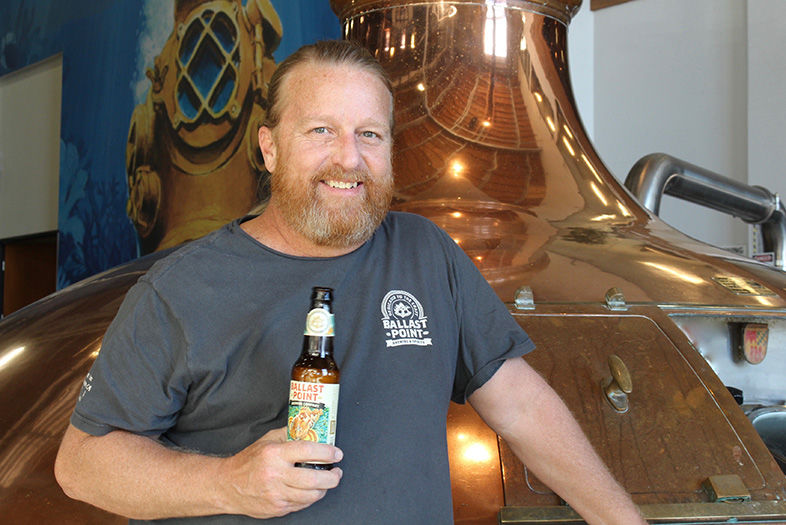
Has Anything Really Changed Since Ballast Point Sold to Constellation?
Colby Chandler is Vice President and Specialty Brewer at Ballast Point Brewing Company | Photo: Bruce Glassman
